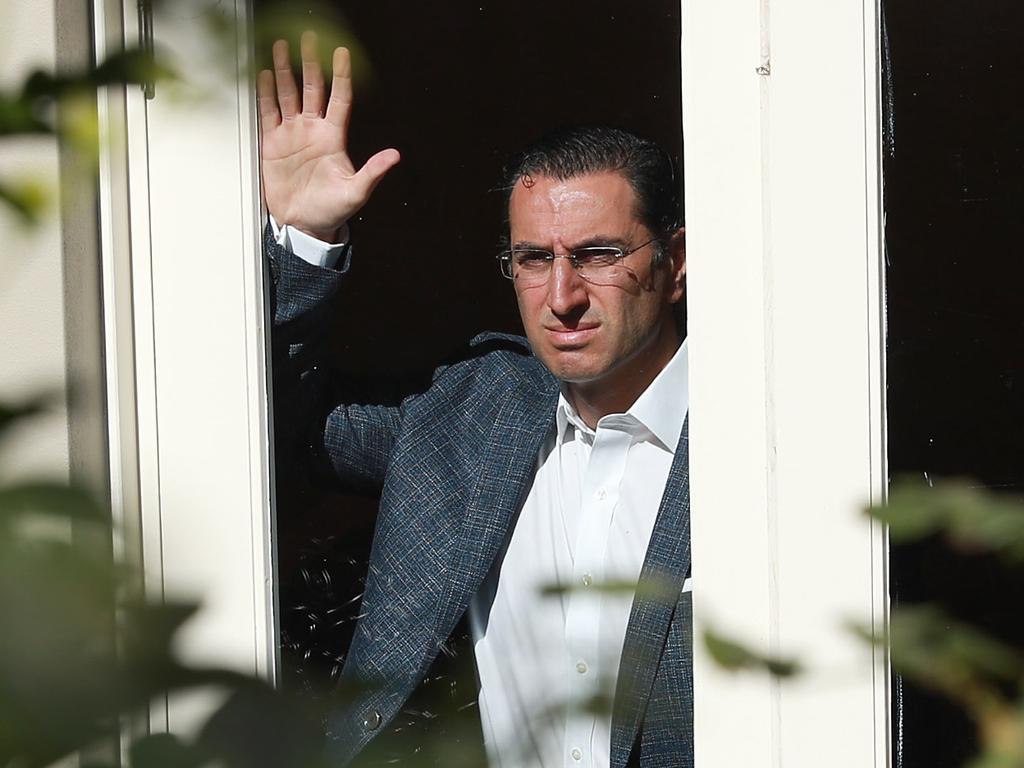How will the world’s top business schools emerge from COVID-19?
How will the world’s top business schools emerge from COVID-19?

A recession is usually good news for a business school, which is a traditional escape route for an unemployed worker — a place to wait out a bad job market and trigger a reset of one’s career. But according to Harvard Business School Online executive director Patrick Mullane, this time it’s different.
Says Mullane: “This is not like a typical recession where people say: ‘I’m going to apply to business school as I have nothing better to do’. There’s a lot less certainty (where) they’re worried about where their next dollar is going to come from so they can buy groceries.”
With concerns over a second wave of COVID-19 cases if restrictions are lifted and likely limits on international travel until a vaccine is found, US business schools are in a holding pattern over whether to start classes for the autumn semester. If they don’t open, it could be disastrous for the sector, particularly if schools try to substitute online learning for the classroom experience.
According to a poll taken by Poets & Quants, a business school news site, 43 per cent of admitted MBA students want tuition fees lowered if classes begin online. At the world’s top ranked business school, Stanford, 80 per cent of students have signed a petition calling for reduced fees if classes resume online next semester.
The top universities, with their multi-billion-dollar endowments, can handle that kind of blow but, according to Mullane, there will be a “massive culling of the herd”.
“There are a lot of schools throughout the world that were living on the edge from a financial standpoint,” he says. “Two years from now, my suspicion is there will be fewer in-person MBA programs offered worldwide than there are today.”
Harvard was one of the first movers into online provision of courses, launching in 2014 with preparation courses on financial accounting, economics and business analytics for incoming MBA students who came from a non-finance background.
The offering has expanded to almost a dozen courses, with programs such as management essentials, leadership principles and disruptive strategy on offer at $US1600 ($2550) for six to eight-week courses of six to eight hours a week. So far 75,000 students have taken a HBS Online course, with Australia the school’s fifth largest market.
It’s a $US43m business and growing fast, but it is still dwarfed by in-person MBA and executive education programs that raked in $US360m in tuition last year.
So, could online education programs eventually replace the high-fee model of top business schools where a two-year MBA costs $US250,000 once living expenses are factored in?
Scott Galloway, a high-profile professor of marketing at New York University’s Stern Business School, thinks online could win. An expert on the rise of digital behemoths such as Google and Amazon, Galloway says the sector is ripe for disruption. He argues the inflation in education — at both graduate and undergraduate schools — will finally be exposed.
“In academia, we have been preying on the hopes and prayers of the middle class, offering parents the chance to check an instinctive box, giving their kids a better life, by sending them to college,” he writes on his weekly blog No Mercy, No Malice. And he doesn’t excuse himself from being part of a system where student debt is now $US1.6 trillion and second only to mortgage debt as a drag on the balance sheet of the American consumer.
“I’m good, maybe even great, at what I do. But on (videoconferencing app) Zoom people are going to discover I was never worth $100,000 per class,” he writes, calculating the revenue for 172 students at $US7000 a semester. “My stay of execution will be that I teach at one of the top 10 universities.”
Galloway predicts that as the digital giants emerge from the COVID-19 recession stronger than ever, they will use their market power to muscle into the education sector to exploit the juicy margins on offer.
Just as the severe acute respiratory syndrome (SARS) outbreak helped accelerate e-commerce in Asia, creating the likes of Alibaba, this pandemic could lead to big tech players partnering with top institutions to deliver education at a fraction of the price.
With campuses no longer a constraining factor, Galloway suggests, the Massachusetts Institute of Technology and Google could partner to create a two-year science, technology, engineering and mathematics degree and “enrol 100,000 kids at $100,000 in tuition (a bargain), yielding $5bn a year that would have margins rivalling … MIT and Google”.
-
‘As the digital giants emerge from the COVID-19 recession stronger than ever, they will use their market power to muscle into the education sector to exploit the juicy margins on offer.’
— Scott Galloway, professor of marketing at NYU’s Stern Business School
-
The idea is not so fanciful to Harvard’s Mullane.
“I do think you’ll maybe see partnerships which could see a Harvard-like brand partnering with Amazon because Amazon has incredible distribution capacity,” he says. “(But) brands (universities) are going to have to think long and hard because a lot of the brand value has come through exclusivity and if it’s available to larger audiences, does that lack of exclusivity make the brand less valuable?”
When you are one of 900 students chosen from 12,000 applicants you have an incredibly powerful signalling tool to a potential employer. Many MBAs also argue that the network obtained is worth more than the education received.
As a business school graduate, I can attest to the value of taking time out mid-career to immerse myself in an educational experience, and the richness of campus life will be with me forever. It was expensive but I don’t begrudge the cost. By contrast, online education continues to struggle to engage students. Mullane says that the completion rate of a massive open online course at a site such as Coursera or EdX sits at about 7 per cent or 8 per cent, whereas the completion rate for HBS Online is 80 per cent to 85 per cent because when “you’re putting money down you’re going to pay attention”.
Mullane also attributes that success to good pedagogy. HBS is known for its “case method” tuition where students interact around a real-life issue that has affected a company. HBS built the software from scratch to facilitate discussion and trained professors in delivering classes via Zoom, while students interact and assist each other in real time.
“We don’t have teacher’s assistants,” he says. “Questions are answered by people in the cohort and we have been blown away. I think probably the biggest learning is that crowdsourcing works. It works almost 100 per cent.”
When the in-person MBA was shut down for the US spring break, Mullane and his team had to scramble to scale up the platform from their dozen or so short courses to provide a full MBA online. In two weeks they trained 100 faculty members to teach on Zoom, and by the Monday when classes were due to resume had provided 45 classes to students around the world. It’s proof of the scalability of education technology but, as Mullane says, “the students certainly missed the human interaction”.
Harvard also offered without charge several of its lessons — 10 hours of material, including leadership lessons on how Ernest Shackleton maintained team cohesion and a positive outlook while his ship was trapped in Antarctic ice. Tens of thousands signed up within hours of the announcement, a marketing masterstroke for HBS Online. New applications are paused with the aim of ensuring consistent delivery of the product but it will be a fascinating test case for whether a 400-year-old institution ultimately can become a disruptive force in its industry.
All this threatens Australia’s universities too. If online education can be cracked and delivered from and to anywhere, those universities that can afford superstar professors increasingly will come to dominate enrolments and the tuition dollars that flow from them.
Galloway certainly thinks that is likely. Just as Amazon, Google, Facebook and Apple have come to dominate the tech sector, brand-name schools have the power to kill weaker institutions.
“Like most industries disrupted by software, tremendous value will accrue to millions of consumers via deflation,” he says. “Hundreds of thousands of jobs will vanish. And billions of shareholder value will flow to disturbingly few organisations and their stakeholders.”




To join the conversation, please log in. Don't have an account? Register
Join the conversation, you are commenting as Logout